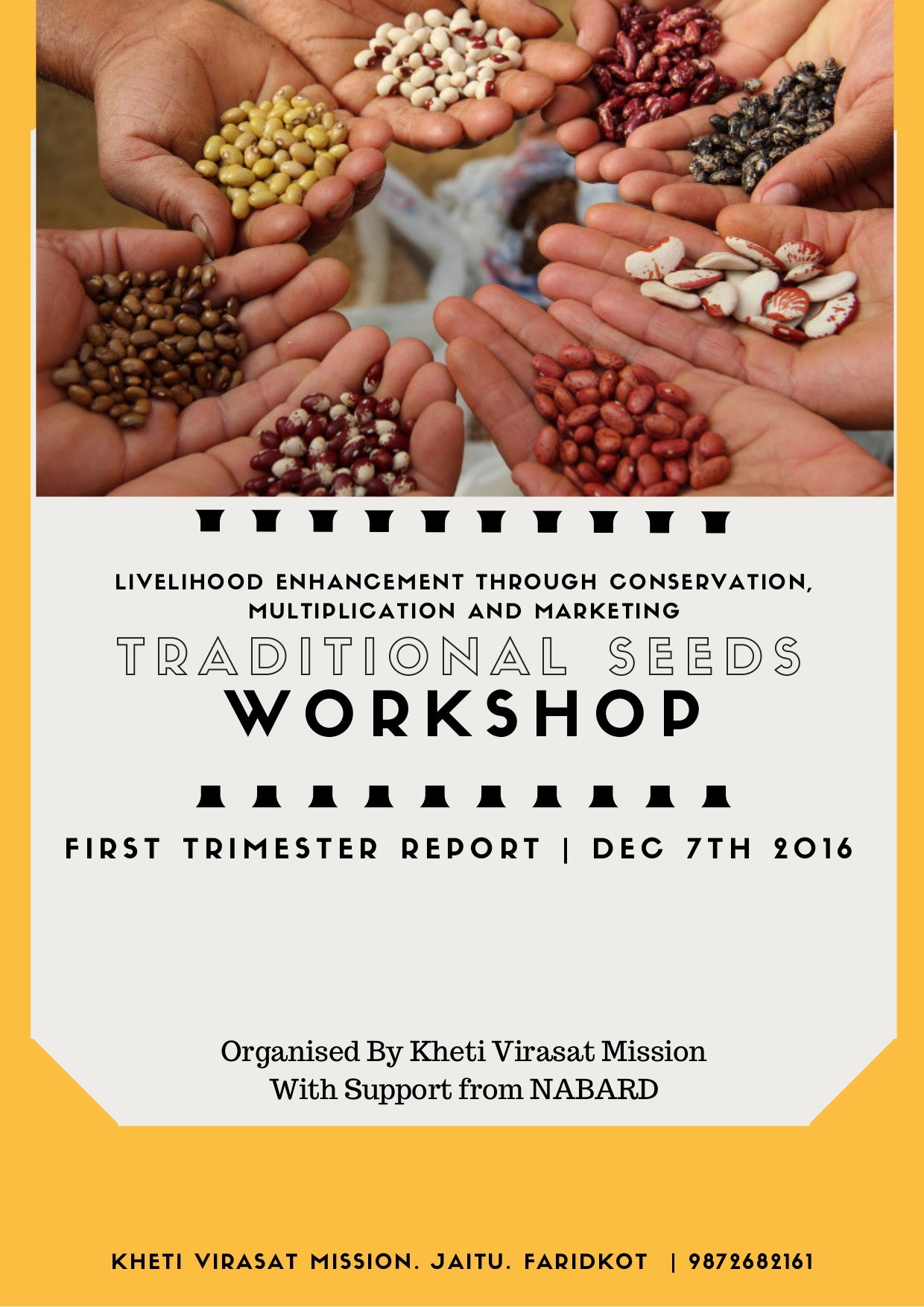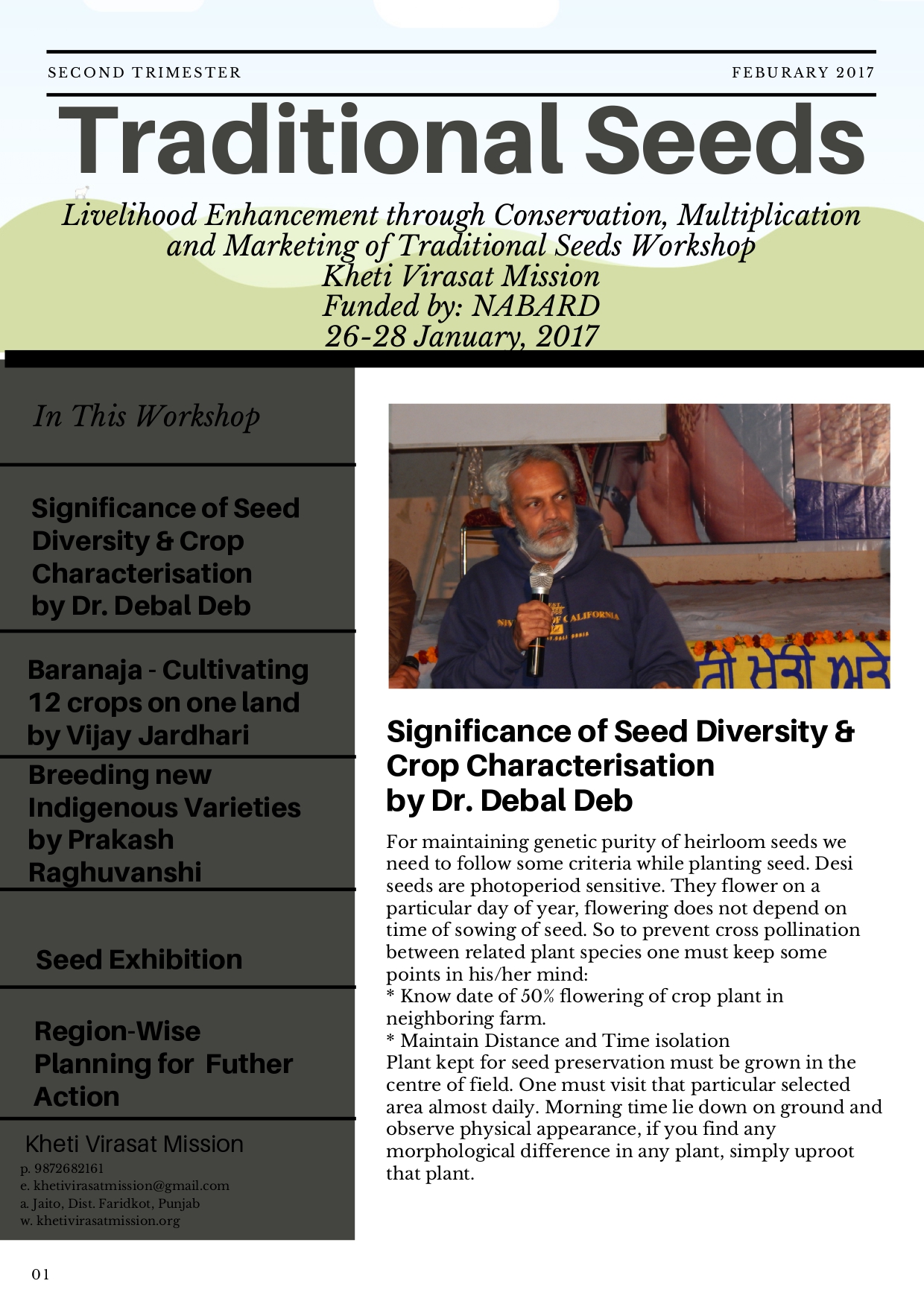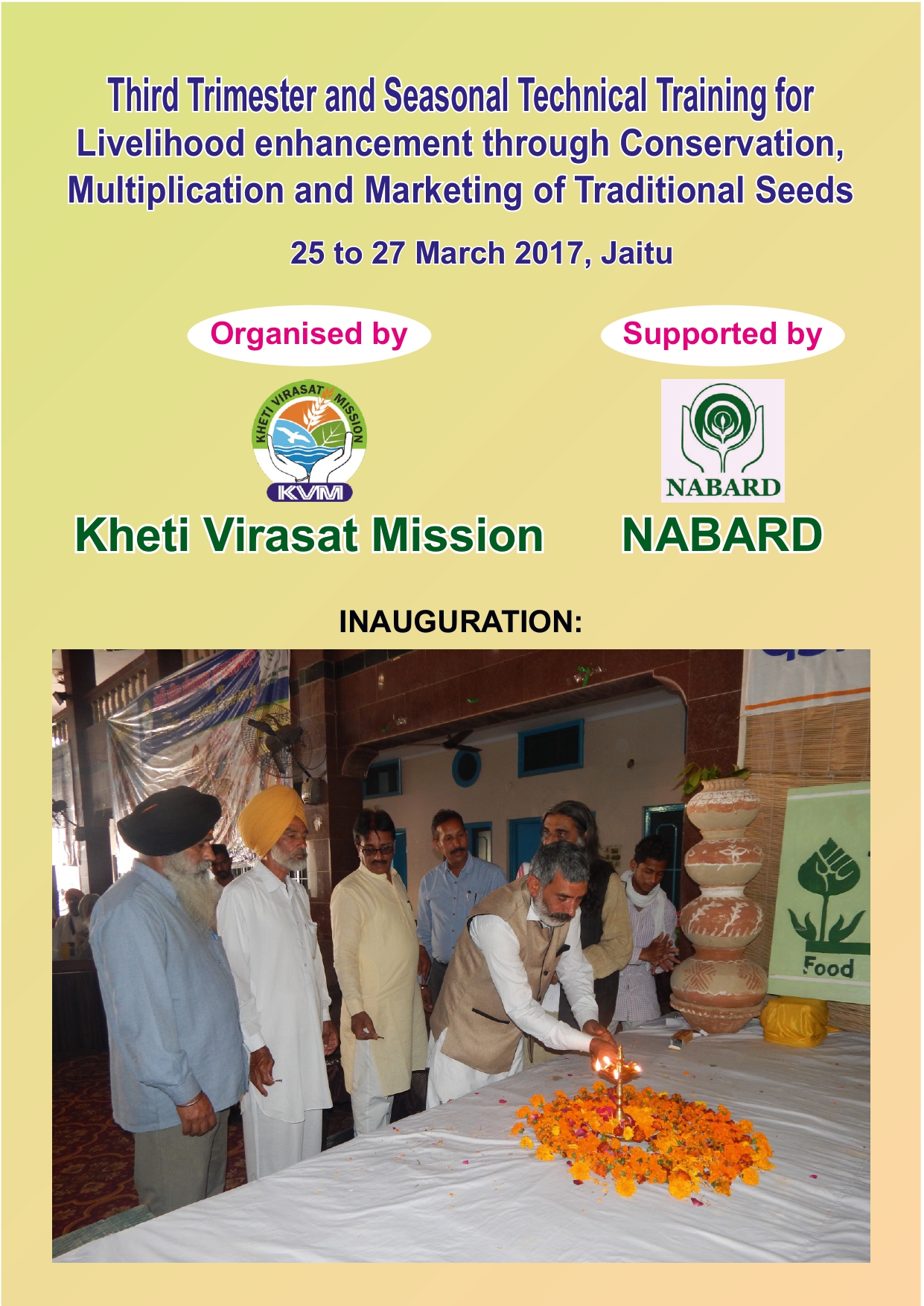Seed Conservation
They tried to bury us,
They didn’t know we were Seeds..
The creation of a thousand forests is in one acorn. - Ralph Waldo Emerson
So mighty is the strength of a seed. Our ancestors acknowledged this fact. Therefore, from times immemorial, every community had its own ways of conserving, preserving and sharing the seeds. The seed diversity was religiously passed down to the generations who preserved it with sanctity and dedication.
Our ancestors were also the ultimate plant breeders. They domesticated wild plants and developed several new varieties by natural selection. For instance, Indian farmers had developed around 2 lakh varieties of rice, each adapted to specific growing conditions and soil type; having distinct flavour & aroma; specified uses; medicinal properties and morphological characteristics.
But, with the invasion of MNCs, Seed & Agro industries, this culture was brutally shattered and this wisdom was obliterated. Patented Hybrid seeds, which require high doses of chemicals, were introduced. These seeds, developed in laboratories with the aim of monopolising the global agriculture, were never able to match the vigour, vitality and life force energy of those developed naturally over centuries. The hybrid seeds captured the market in no time. Thus we lost the Seed Sovereignty. We lost the Seed Diversity, along with.
Seeds are sentient entities, to be treated with respect and compassion. They can’t be monopolised to achieve the ulterior motives. From farmers, who sow the seeds systematically in their fields; to any individual who would randomly throw and allow them to grow in his backyard - our vision is make indigenous seeds freely available to all.
KVM is restoring the Seed Diversity and reviving the culture of Seed Conservation in Punjab. We are working on:
- Village Level Mapping of traditional seed varieties of various crops
- Mapping of traditional seed
- Locating the knowledge keepers
- Sample collection of traditional seeds
- Characterisation of the identified seed varieties
- Mobilising farmers for seed production and in-situ seed conservation
Seed Conservation Workshops
We organise technical workshops on conservation, multiplication and marketing of traditional seeds, where we invite internationally acclaimed experts to facilitate trainings and practical demonstrations for:
- Crop characterisation
- Organic production of Open Pollinated seeds
- Different Isolation techniques for maintaining germ plasm purity vis-a-vis time isolation, distance isolation, bagging, caging, tunnelling etc.
- Seed extraction methods for vegetables
- Developing new varieties by Natural Selection
- Traditional seed storage mechanisms
Farmers as Seed Savers
So far, we have trained 500 farmers in our workshops. Since Punjab was void of its local diversity, we initially outsourced the native seeds from states like Andhra Pradesh, Maharashtra, Uttar Pradesh, Himachal Pradesh etc. and distributed among farmers. At present, there are 350 farmers who are conserving, multiplying and marketing the native seeds of grains, pulses, vegetables fruits and medicinal herbs.
Family Seed Banks
This idea mushroomed with the realisation that our kitchen gardeners had to look upon us every year to get the seeds. To make them independent, Seed Conservation became an integral part of our Kitchen Gardening workshops. Housewives, students, rooftop and urban gardeners eventually evolved as Seed Savers. Today we have 110 Family Seed Banks – sacred and cosy corners in the gardeners’ houses. Here, the seeds wait patiently till they go back into the soil and reap abundance.
Young Seed Keepers
This was a group of 20 young girls trained into conservation of indigenous seeds. Their classroom was a one-acre rented plot in Chaina village of Faridkot district. They were trained to manage the farm; grow organic & indigenous vegetables; conserve the seeds, preserve them with traditional practices and market them in various public events, under the auspices of KVM. These seeds were sold as ‘seed kits’, yielding an annual earning of 80,000 INR; which was distributed among the group itself.
Battle against Genetically Modified Seeds
GM technique has a drastic potential to do a permanent damage to our food chain, environment and health. Nobody can prevent Genetic Pollution and Contamination caused by GM Crops.
We owe the responsibility to create awareness among masses by exposing the under the table introduction of GM crops in India. We have initiated anti-GMO movement in Punjab which includes regular campaigns, public dialogues, experts' talks & seminars regarding:
- The potential harmful effects of GMOs on the environment and human health
- Loss of bio-diversity due to GM seeds
- Failure of Bt Cotton in India and other GM crops in the world
- The socio-political impacts of GM seeds
- Risks for farmers -increased input costs, seed sovereignty etc.


